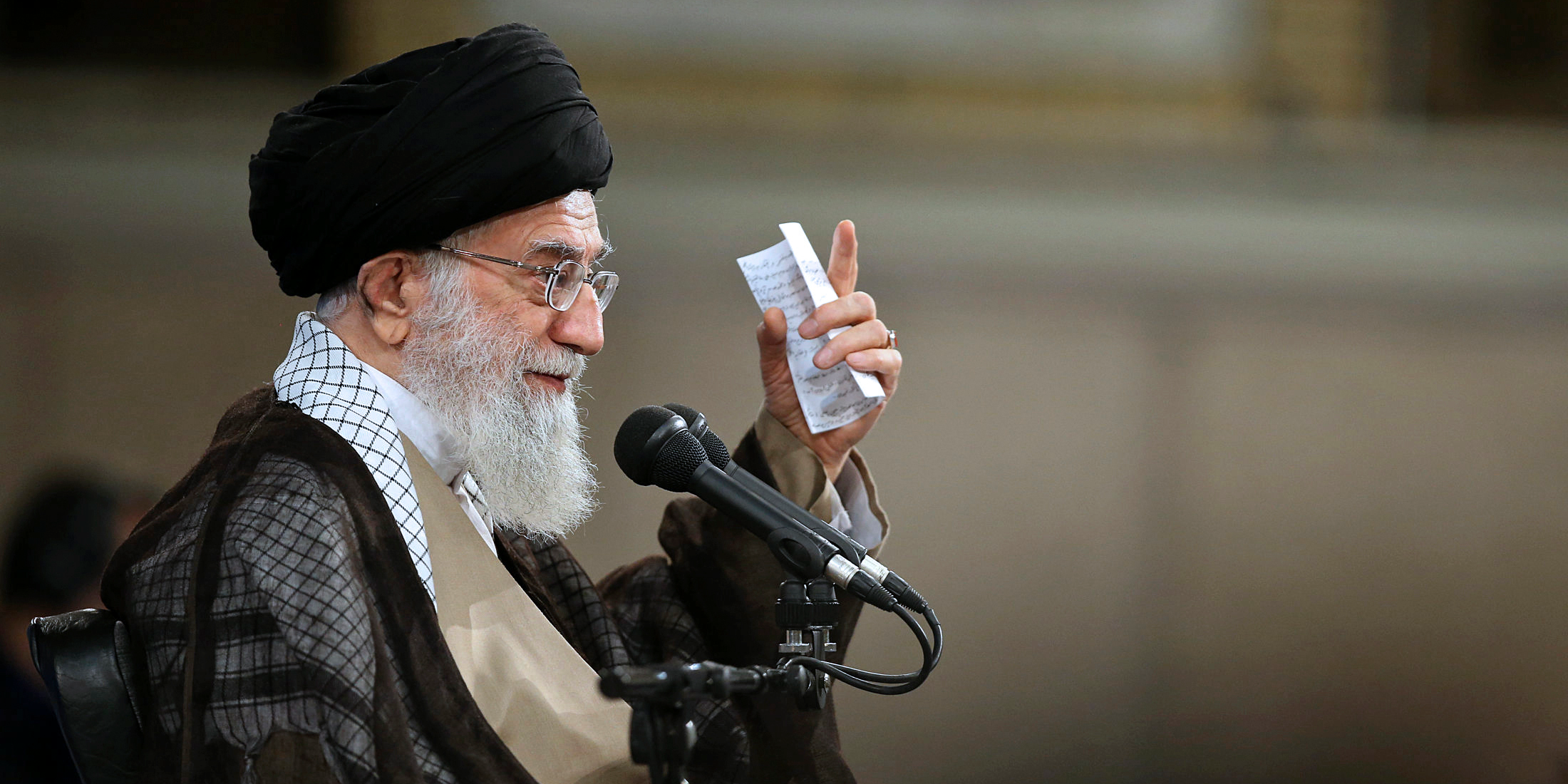Iran’s own Supreme Leader, Ayatollah Ali Khamenei, may have just torpedoed his own country’s campaign to be removed from the blacklist of states who cannot or will not prevent money laundering and the financing of terrorism.
Tehran’s best hope for getting off the blacklist is to implement all the measures laid out in a 2016 Action Plan drawn up by the Financial Action Task Force (FATF), the inter-governmental body that maintains the blacklist. One of those measures is signing up to the UN Convention on the Suppression of Terrorism Financing, which went into effect in 2002 and has 132 signatories and 188 parties.
The Supreme Leader, who has the final say on whether or not Iran joins international conventions, just told his Parliament that he opposes them, “It is not necessary to join conventions whose depths we are unaware of.”
The timing of Khamenei’s announcement will magnify its impact; it comes less than a week before the FATF plenary in Paris, which starts on June 24. Iranian representatives have been aggressively lobbying FATF’s members for two years, seeking to persuade them that Iran is serious about reforms to stem its systemic money laundering and terror finance problems.
FATF members sympathetic to Iran have argued that the organization should support and encourage so-called reformers. Khamenei’s statements should shut the door on this argument once and for all.
The Iranian parliament had hotly debated whether it would pass legislation allowing the country to sign on to key international conventions. In the end, the parliament decided to delay a vote for two months, waiting to see whether despite the US withdrawal from the 2015 nuclear deal Europe would be prepared to defy the U.S. sanctions.
It would be a mistake, however, to assume that heated debates in parliament indicated a serious prospect that Iran would change the behavior responsible for landing it on the FATF blacklist, whose only other occupant is North Korea. The legislation the parliament is considering still includes troubling exceptions that would give Iran a license to violate the norms that FATF has done so much to establish. For example, one of the consistent obstacles to change is Iran's insistence that it determine its own definition of terrorism, including in the context of terror finance conventions. This reflects a deliberate effort to exempt Hezbollah, Hamas and other terrorist organizations from this definition so that Iran can continue to financially and militarily support these groups.
Seeing as Iran is the world's leading state sponsor of terrorism, one can only imagine why that would not sit right with FATF.
While joining international conventions is certainly a relevant consideration, Iran's underlying behavior is what financial institutions, risk managers, due diligence officers and national security professionals consider in deciding whether to transact with Iran.
In that regard, lip service to FATF requirements is less important than the fact that the regime harbors a notoriously unscrupulous legal system that contains significant carve-outs for governmental discretion (under the dubious pretext of "national security"), as well as the business empires of Iran's Islamic Revolutionary Guard Corps (IRGC) and the Supreme Leader. Iran's poor rankings on a wide range of corruption and compliance indexes underscore this point.
An overall lack of transparency presents compliance risks to companies and financial institutions interested in doing business in Iran.
In addition, Tehran's regional aggression and human rights violations show no signs of abating. In the last year, protests throughout Iran signaled increased discontent by the Iranian street with the regime's actions. Since President Hassan Rouhani's election in 2013, Iran's repression of its own people, including torture, sham trials, lack of free speech, and widespread executions, has intensified. Iran has provided funding, troops, and training to Syria's Bashar al-Assad, enabling him to engage in mass atrocities that have left half a million Syrians dead and millions displaced from their own homes. Iran's support for terrorist proxies in Iraq, Lebanon, Yemen and elsewhere has also continued, generating widespread instability across the Middle East and beyond.
Foreign companies seeking to do business in Iran would require enhanced due diligence to be sure they are not transacting with organizations engaged in corruption, and responsible for this violence and repression. It's unclear if this is reliably possible.
Over the past two years, Iran has neither achieved technical compliance with its FATF Action Plan, nor has it changed its malign conduct which has destabilized the entire Middle East. On both of these grounds, FATF would be right to re-impose the countermeasures it temporarily suspended when the Action Plan was introduced in 2016. Regrettably, there are no grounds for leniency.
On June 5, Under Secretary of the Treasury for Terrorism Finance and Financial Intelligence Sigal Mandelker summed up the deceptive practices Iran uses. "Iran's objective is to ensure that no legitimate company or government knows that they are being used to achieve Iran's illicit aims," she said. Her "buyer beware" message was unambiguous: "To those in the private sector, I urge you to take additional steps to ensure Iran and its proxies are not exploiting your companies to support their nefarious activities. You may think your clients and counter parties are legitimate, but they may be in fact part of the Iranian regime's deceptive schemes to fund terrorism and human rights abuses."
Corruption and illicit finance are integral means for the Iranian government to maintain its hold on power and pursue its revolutionary interests abroad. Whether or not Iran signs on to international agreements, its underlying nefarious activities need to change before Iran should be granted access to the global financial system.
Not only is FATF's own credibility is at stake, so is the integrity of the global financial system.
Toby Dershowitz is senior vice president for government relations at the non-partisan Foundation for Defense of Democracies where Saeed Ghasseminejad is a research fellow. Follow them @tobydersh and @SGhasseminejad.


